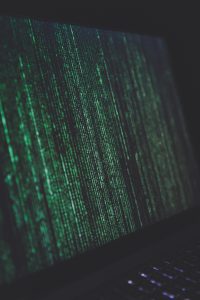 Terrorism is the current concern of the cyber security community. The key legal principles are laid out at a national level. However, there are many other forms of cybercrime which are largely downgraded yet quite capable of harming people. This is not just a problem for Chicago, but for the entire world at large. As is often the case in these instances, the argument is about establishing the right parameters for upgrading a simple cybercrime into cyberterrorism or cyberwar. For example, internet trolling is rarely capable of meeting the standards of terrorism, yet it is also a serious crime that is often prosecuted by the authorities. Others have decided to define cyberterrorism as any form of cyber crime that involves nations or entire communities.
Terrorism is the current concern of the cyber security community. The key legal principles are laid out at a national level. However, there are many other forms of cybercrime which are largely downgraded yet quite capable of harming people. This is not just a problem for Chicago, but for the entire world at large. As is often the case in these instances, the argument is about establishing the right parameters for upgrading a simple cybercrime into cyberterrorism or cyberwar. For example, internet trolling is rarely capable of meeting the standards of terrorism, yet it is also a serious crime that is often prosecuted by the authorities. Others have decided to define cyberterrorism as any form of cyber crime that involves nations or entire communities.
Some of the worst offenders under this law are not pariah states but individuals who have used their expertise in order to hack into government agency databases before strategically leaking the resultant data in order to cause maximum embarrassment to the government. Although WikiLeaks and Snowden might argue that they do not meet this criteria, the reality is that the US government considers their actions to be a threat to the state. Therefore, the prosecution process and the indicative sentencing might be a lot harsher than would be the case for other types of cybercrime. We might then argue that it is the state that determines the fine line between cybercrime and cyberterrorism.
Investigating and Classifying the Crime
The clandestine nature of cyberterrorism and the relative sophistication of the defendants means that this remains one of the most difficult offenses to prosecute. The investigation alone can cross borders and jurisdictions. The offenders take meticulous care to cover their tracks. In some cases, they are not even available to assist in the investigation. Hacking alone does not constitute the crime of cyberterrorism. You need violence or a threat of violence as well as mass concern or panic amongst the wider public. If and when the defendant is a spy, then the charge sheet and even the court may be adjusted accordingly. Given the seriousness of the crime, some of the sanctions may involve prevention from making use of certain electronic devices or even the internet.
The duty of states includes the requirement to assist in investigations. That might mean engaging in surveillance activities or even cooperating with federal authorities during their investigations. The states have an interest in preventing cyberterrorism because they are on the frontline of suffering the immediate consequences of the crime. The federal government merely deals with the top level issues such as the transnational overtones of the crime. Chicago is not alone in preparing mechanisms for tackling the problem of cyberterrorism before it results in a major incident such as the 911 attacks.
Notes for the Defending Attorney
Aggressive as the prosecution may understandably be, this is a specific crime that requires specific proof. Its definition is highly technical. Typically, the defense attorney will want to downgrade it to computer misuse or some other relatively mild cybercrime. That means ensuring that the state of mind of the defendant is carefully examined at the time of committing the crime. It also means holding the prosecutor’s feet to the fire in terms of ensuring that they have followed all the laid out rules for undertaking this process. All that may not prevent the defendant from spending years in prison during an investigation. This is the type of crime for which bail applications are difficult to successfully present because there is always a risk of ongoing offending once the defendant is released. Call David Freidberg Attorney at Law now at 312-560-7100 to get the legal help you deserve.
(image courtesy of Markus Spiske)
 Chicago Criminal Lawyer Blog
Chicago Criminal Lawyer Blog


